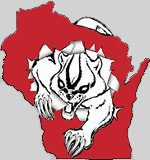Dishwashers for Clinton
Listed on page A22 in the Washington Post. Hum? I cannot imagine why the media has barely given this a second thought. Oh that's right- it is Hillary and she always gets a pass.
DONORS WHOSE addresses turn out to be tenements. Dishwashers and waiters who write $1,000 checks. Immigrants who ante up because they have been instructed to by powerful neighborhood associations, or, as one said, "They informed us to go, so I went." Others who say they never made the contributions listed in their names or who were not eligible to give because they are not legal residents of the United States. This is the disturbingly familiar picture of Hillary Rodham Clinton's presidential campaign presented last week in a report by the Los Angeles Times about questionable fundraising by the New York senator in New York City's Chinese community. Out of 150 donors examined, one-third "could not be found using property, telephone or business records," the Times reported. "Most have not registered to vote, according to public records."
This appears to be another instance in which a Clinton campaign's zeal for campaign cash overwhelms its judgment. After the fundraising scandals of President Bill Clinton's 1996 reelection campaign, the dangers of vacuuming cash from a politically inexperienced immigrant community should have been obvious. But Ms. Clinton's money machine seized on a new source of cash in Chinatown and environs. As the Times reported, a single Chinatown fundraiser in April brought in $380,000. By contrast, 2004 Democratic presidential nominee John F. Kerry raised $24,000 from Chinatown in the course of his entire campaign.
As with the warnings it dismissed about the mega-bundles being brought in by fundraiser Norman Hsu, the Clinton campaign saw the red flags here. After the April fundraiser, when some of the donors' stated occupations seemed out of line with the amounts they were giving, the Clinton campaign wrote to contributors asking them to confirm that the money was their own. In the case of seven $1,000 contributions, donors did not respond and their checks were returned, according to the campaign. The campaign says that the others, including one who told the Times that he did not give the money, reaffirmed the legitimacy of their contributions.
It's certainly true, as campaign spokesman Howard Wolfson says, that "Asian-Americans in Chinatown and Flushing have the same right to contribute as every other American." The campaign argues that it did what it could to ensure that contributions were legal. The alternative, the campaign says, would be to prevent those with foreign-sounding names from participating in the political process. But there's another alternative: to strengthen a vetting process that seems geared more toward justifying the acceptance of checks than toward uncovering problems.
DONORS WHOSE addresses turn out to be tenements. Dishwashers and waiters who write $1,000 checks. Immigrants who ante up because they have been instructed to by powerful neighborhood associations, or, as one said, "They informed us to go, so I went." Others who say they never made the contributions listed in their names or who were not eligible to give because they are not legal residents of the United States. This is the disturbingly familiar picture of Hillary Rodham Clinton's presidential campaign presented last week in a report by the Los Angeles Times about questionable fundraising by the New York senator in New York City's Chinese community. Out of 150 donors examined, one-third "could not be found using property, telephone or business records," the Times reported. "Most have not registered to vote, according to public records."
This appears to be another instance in which a Clinton campaign's zeal for campaign cash overwhelms its judgment. After the fundraising scandals of President Bill Clinton's 1996 reelection campaign, the dangers of vacuuming cash from a politically inexperienced immigrant community should have been obvious. But Ms. Clinton's money machine seized on a new source of cash in Chinatown and environs. As the Times reported, a single Chinatown fundraiser in April brought in $380,000. By contrast, 2004 Democratic presidential nominee John F. Kerry raised $24,000 from Chinatown in the course of his entire campaign.
As with the warnings it dismissed about the mega-bundles being brought in by fundraiser Norman Hsu, the Clinton campaign saw the red flags here. After the April fundraiser, when some of the donors' stated occupations seemed out of line with the amounts they were giving, the Clinton campaign wrote to contributors asking them to confirm that the money was their own. In the case of seven $1,000 contributions, donors did not respond and their checks were returned, according to the campaign. The campaign says that the others, including one who told the Times that he did not give the money, reaffirmed the legitimacy of their contributions.
It's certainly true, as campaign spokesman Howard Wolfson says, that "Asian-Americans in Chinatown and Flushing have the same right to contribute as every other American." The campaign argues that it did what it could to ensure that contributions were legal. The alternative, the campaign says, would be to prevent those with foreign-sounding names from participating in the political process. But there's another alternative: to strengthen a vetting process that seems geared more toward justifying the acceptance of checks than toward uncovering problems.



<< Home